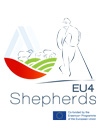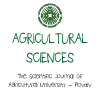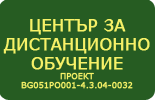Statistics (for specialties “Agricultural economics” and “Business economics”)
The aim of the course is the students to acquire knowledge of theoretical and methodological essence and the possibilities of the statistical approach for studying state, trends and perspectives in the development of phenomena from the economic sphere.
The thematic content of the lecture material is consistent with the specifics of the specialty and forming professional competences, by revealing the cognitive significance of the statistical methods, the conditions and the algorithm of their application in solving specific problems in the field of economics and in particular the agrarian economy.
In practice, the capabilities of embedded statistical functions of MS Excel are used.
Emphasis is placed on interpreting the results of statistical research and analysis in order to formulate reasoned conclusions and practical conclusions.
The course introduces the students to the essence and problems in the main topics of the theory of statistics. The most important summary characteristics of the empirical and theoretical distributions are presented, the methodology of the sample surveys, the theory of the statistical conclusions, as well as the methods of analysis of relationships and dependencies, the dynamic analysis and the economic (dynamic) indices.
The acquisition of knowledge about the methodology and the applied aspects of Statistics is a particularly important element of the economic training of the students in the specialty and builds the profile of the specialist economist.
 - Events on the occasion of the 75th anniversary of AU
- Events on the occasion of the 75th anniversary of AU










